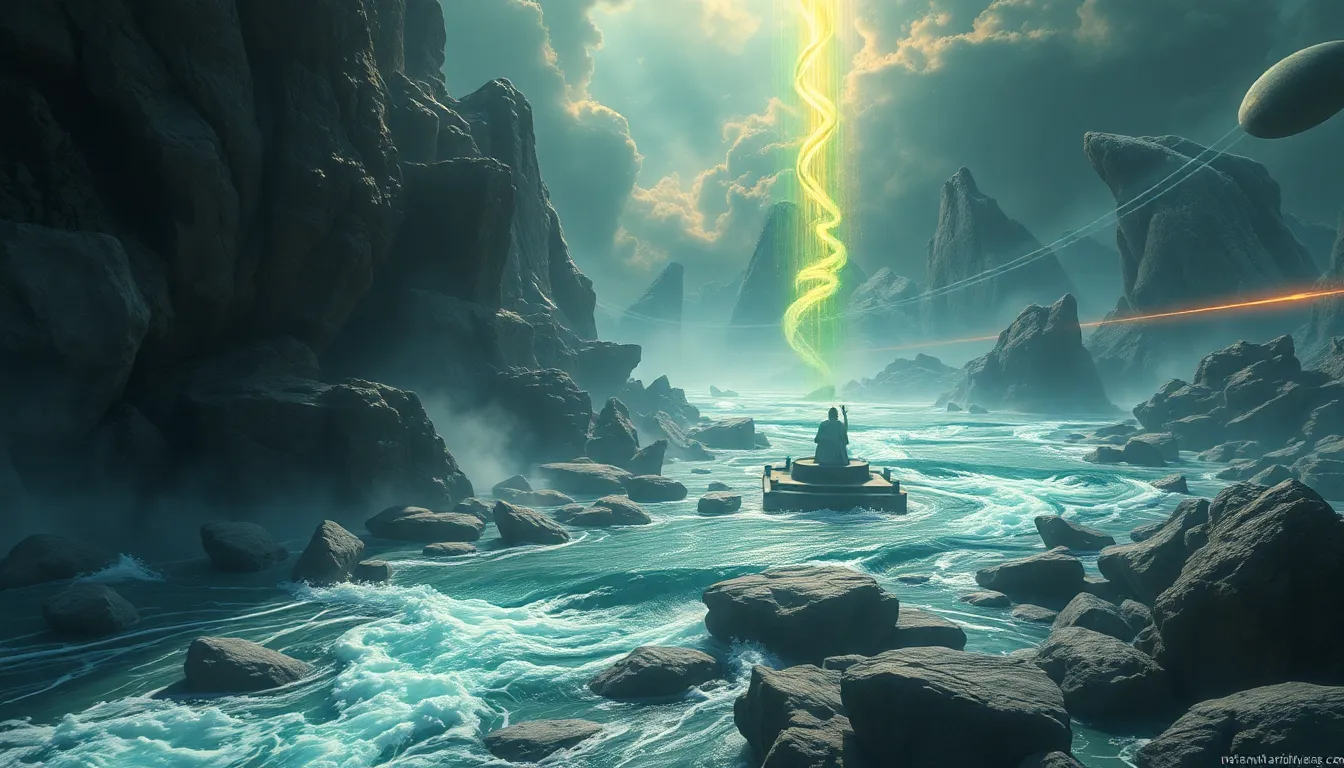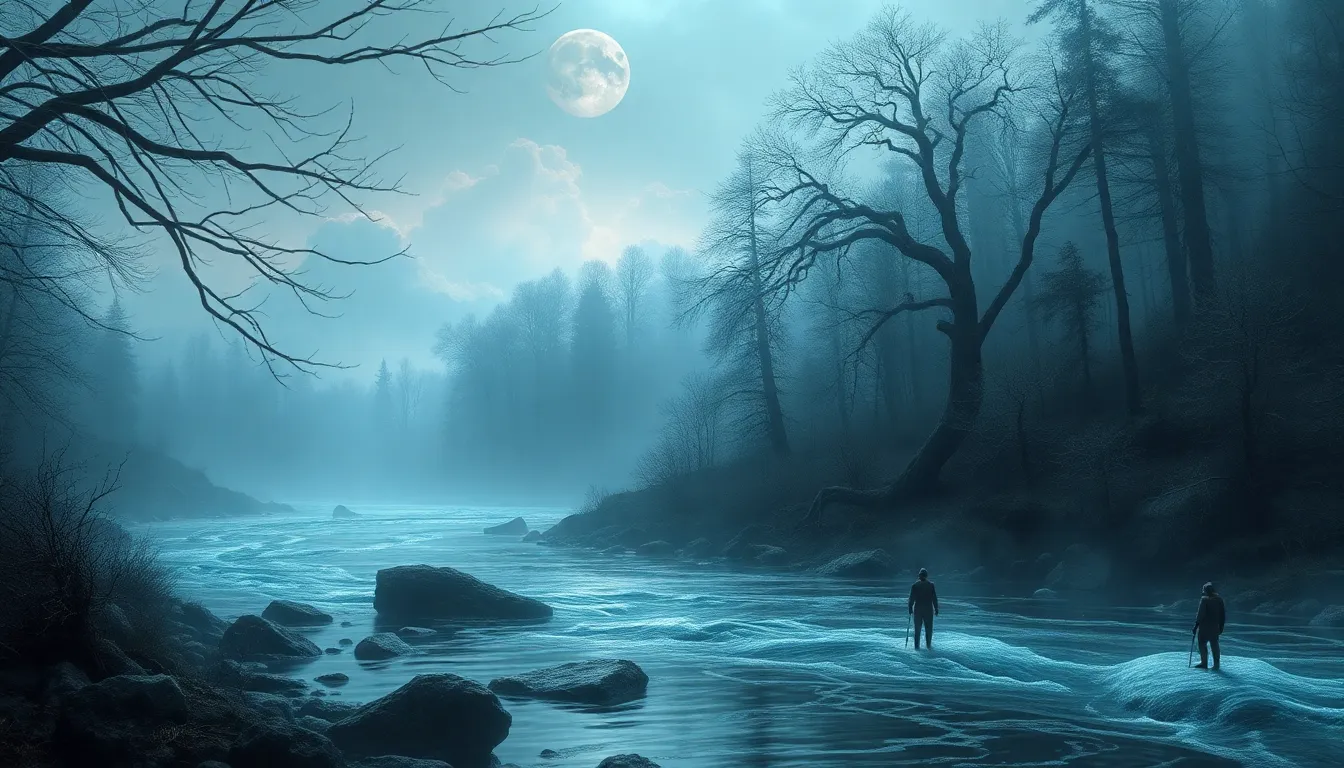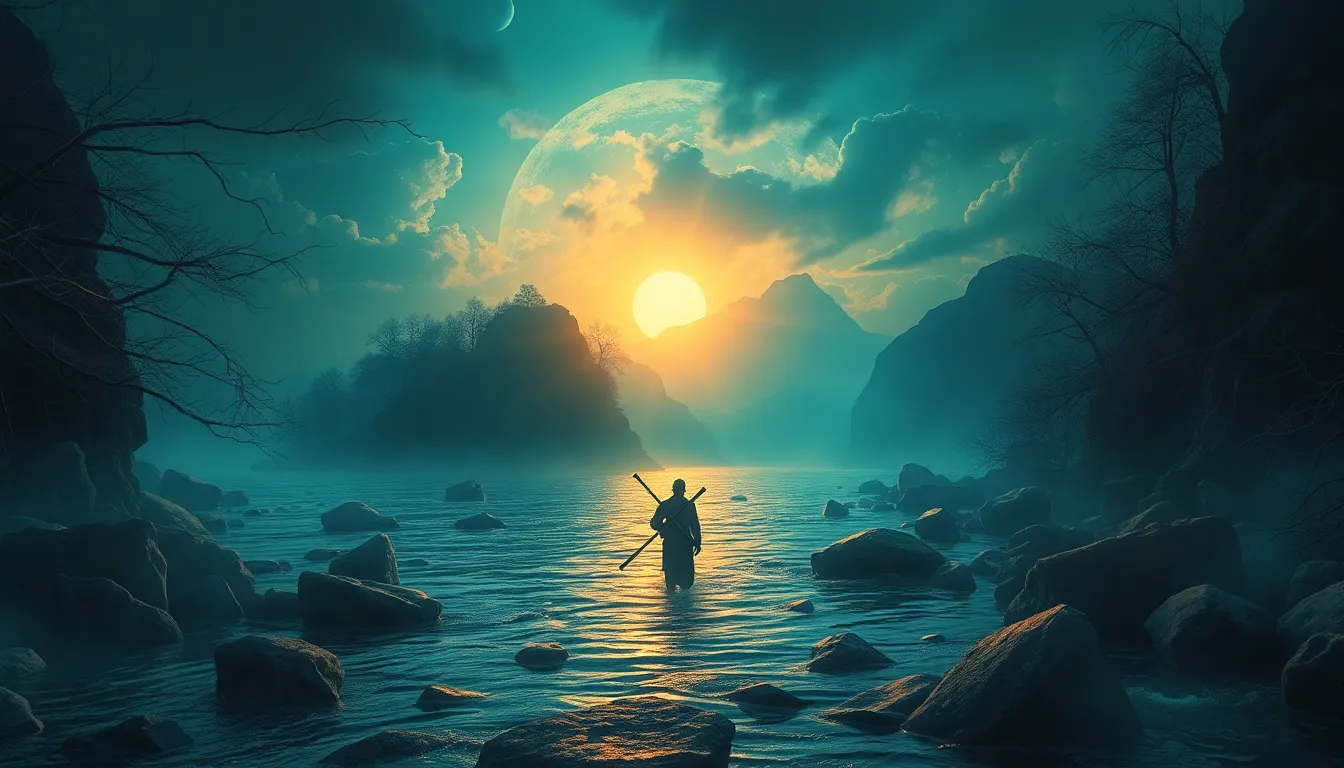The River of Creation: Myths of the World’s Birth
1. Introduction
Creation myths are integral to the identity and culture of societies worldwide. They serve as narrative frameworks that explain the origins of the universe, humanity, and the relationship between the two. Across various cultures, rivers frequently play a significant role in these myths, symbolizing the vital forces of life, creation, and transformation.
This article explores the rich tapestry of creation myths linked to rivers across different cultures, delving into their symbolism, unique narratives, and the essential role they play in the spiritual and physical worlds of humanity.
2. The Symbolism of Rivers in Mythology
Rivers have been depicted in mythology as powerful symbols that encompass a range of universal themes. Some of the most common themes associated with rivers include:
- Life: Rivers provide water, a fundamental necessity for all living beings.
- Death: Rivers often symbolize the boundary between life and the afterlife, as seen in various mythologies.
- Rebirth: The cyclical nature of rivers, with their ebb and flow, represents renewal and transformation.
The connection between water and creation is a prevalent motif. In many traditions, the act of creation emerges from water, illustrating the nurturing and life-giving aspects of this vital resource.
3. Ancient Mesopotamia: The Tigris and Euphrates
In ancient Mesopotamia, the Tigris and Euphrates rivers were not only sources of sustenance but also central to their creation myths. The Enuma Elish, a Babylonian creation epic, narrates how the world was formed from the primordial waters of chaos, represented by the goddess Tiamat.
The rivers played a crucial role in sustaining early civilizations, enabling agriculture and trade. Tiamat’s battle against the god Marduk culminated in the creation of the heavens and the earth from her body, illustrating the duality of creation and destruction, much like the rivers that nourished and shaped life in the region.
4. The Nile and Egyptian Creation Myths
The Nile River held immense significance in ancient Egypt, both as a lifeline for the civilization and as a central figure in their creation myths. The Heliopolitan creation myth describes how the god Atum emerged from the waters of the primordial chaos, known as Nu, to create all things.
The annual flooding of the Nile, which brought fertility to the land, inspired many creation stories. This cycle was seen as a manifestation of Atum’s creative power, reinforcing the belief that the river was a divine gift facilitating life and renewal.
5. The Ganges: Sacred Waters in Hinduism
In Hindu mythology, the River Ganges is revered as a goddess, Ganga, representing purity and the cleansing of sins. The river’s creation story is intertwined with the cosmic ocean, known as Kshīra Sāgara, from which she descended to Earth to purify the souls of the faithful.
Rituals and pilgrimages to the Ganges are seen as acts of devotion, underscoring its significance in the context of creation and the spiritual journey of life. The river’s sacred waters symbolize not only physical life but also spiritual rebirth.
6. Indigenous Creation Myths of North America
Indigenous cultures across North America have diverse creation myths that often feature rivers as central elements. For instance, the Iroquois creation story speaks of the Sky Woman who fell to Earth, landing on a turtle that became the land, with rivers emerging as vital sources of sustenance.
In Navajo mythology, rivers are seen as pathways between worlds, with water serving as a source of life and a boundary between the earthly and the spiritual. These myths reflect a deep reverence for nature and its resources, highlighting the essential role of rivers in sustaining life and community.
7. The Amazon River: Creation in South American Mythology
The Amazon River is central to the creation myths of various Amazonian tribes. Many legends describe the river’s origins as linked to the spirits of nature, illustrating the interplay between spirituality and the environment.
The Amazon is not only a geographic feature but also a cultural identity for many tribes. Its waters are viewed as sacred, representing the lifeblood of the forest and the connection between all living things. Myths often emphasize harmony with nature and the importance of preserving the delicate balance of their ecosystem.
8. The Yangtze and Yellow Rivers in Chinese Mythology
In Chinese mythology, the Yangtze and Yellow Rivers are pivotal in creation stories, particularly those involving the giant Pangu, who is said to have emerged from a cosmic egg. His separation of the heavens and earth initiated the creation of the world, with rivers forming as veins of the earth.
The rivers have also been revered as deities, with legends surrounding various river gods who controlled the waters, reflecting the importance of rivers in sustaining agriculture and civilization in ancient China.
9. Modern Interpretations and Eco-Mythology
In contemporary society, ancient river myths continue to resonate as people grapple with environmental changes and the impact of climate change on their cultural narratives. The resurgence of river worship and eco-mythology movements highlights a growing awareness of the need to protect these vital resources.
Modern interpretations often emphasize the interconnectedness of humanity and nature, advocating for ecological sustainability while drawing inspiration from the ancient narratives that celebrate the life-giving essence of rivers.
10. Conclusion
The exploration of rivers in creation myths across cultures reveals a profound interconnectedness between humanity and nature. These narratives not only illustrate the significance of rivers as life sources but also reflect the spiritual and cultural values of societies. As we face modern challenges, revisiting these myths can foster a deeper appreciation for our environment and inspire collective action toward preservation and respect for the rivers that have long been revered as sacred in human history.



